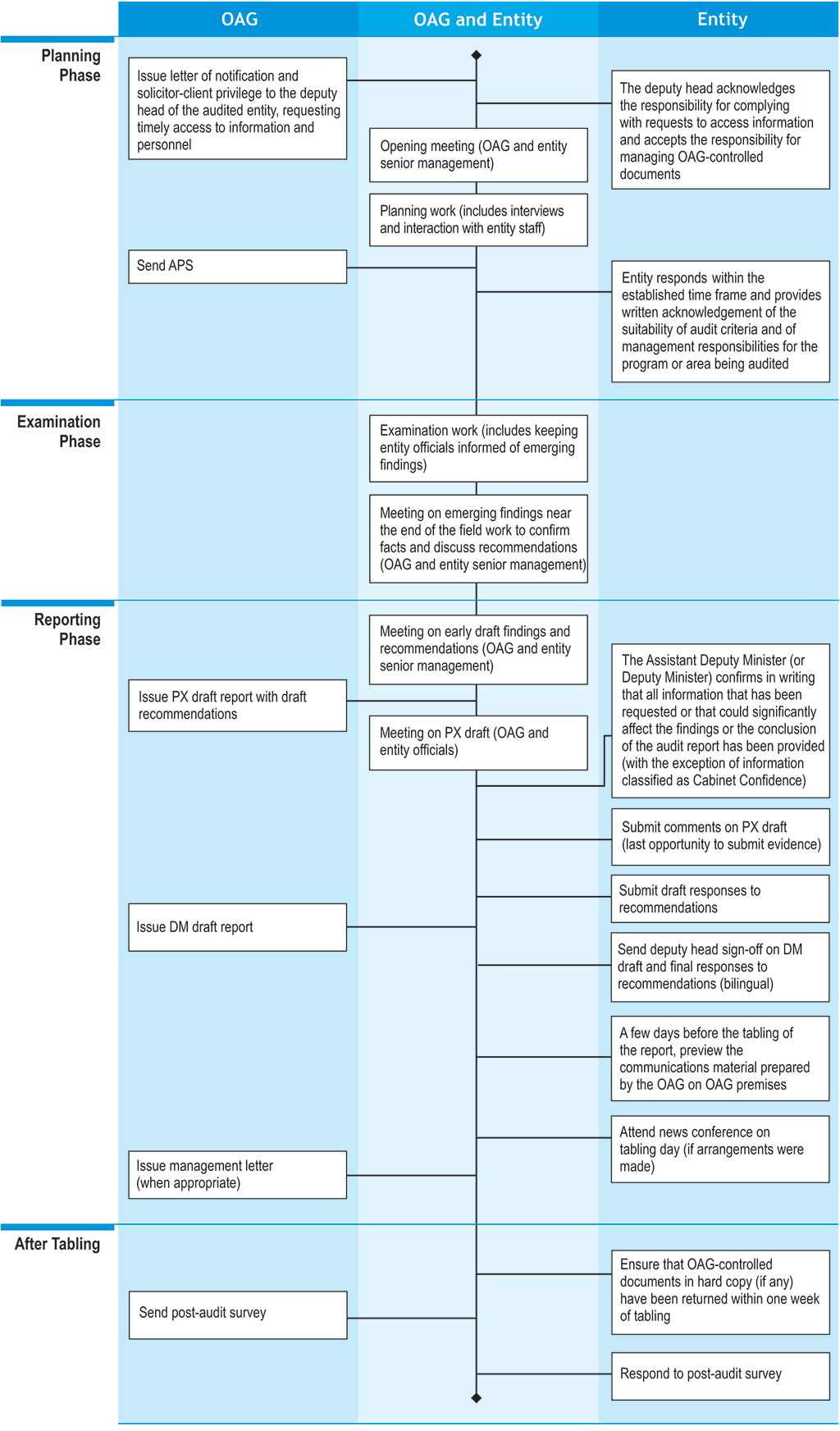What to Expect—An Auditee’s Guide to the Performance Audit Process
A road map for performance audits
The following road map shows the key steps that need to be followed when conducting a performance audit.

Abbreviations:
APS—Audit Plan Summary
DM draft—Deputy Minister’s transmission draft
OAG—Office of the Auditor General of Canada
PX draft—Principal’s draft report
Roadmap—Text version
Planning phase
- The Office of the Auditor General of Canada (OAG) issues a letter of notification and solicitor-client privilege to the deputy head of the audited entity, requesting timely access to information and personnel.
- The entity’s deputy head acknowledges the responsibility for complying with requests to access information and accepts the responsibility for managing OAG-controlled documents.
- The OAG and the entity’s senior management have an opening meeting.
- The OAG carries out the planning work by interviewing and interacting with entity staff.
- The OAG sends the Audit Plan Summary (APS) to the entity.
- The entity responds within the established time frame and provides written acknowledgement of the suitability of audit criteria and of management responsibilities for the program or area being audited.
Examination phase
- The OAG keeps entity officials informed of emerging audit findings.
- The OAG meets with the entity’s senior management near the end of the field work to confirm facts and discuss recommendations.
Reporting phase
- The OAG meets with the entity’s senior management to discuss early draft findings and recommendations.
- The OAG issues the principal’s (PX) draft report with draft recommendations.
- The OAG meets with entity officials to discuss the PX draft.
- The Assistant Deputy Minister (or Deputy Minister) confirms in writing that all information that has been requested or that could significantly affect the findings or the conclusion of the audit report has been provided (with the exception of information classified as Cabinet Confidence).
- The entity submits comments on the PX draft to the OAG (last opportunity to submit evidence).
- The entity submits its draft responses to the recommendations.
- The OAG issues the deputy minister’s (DM) draft report.
- The entity sends the deputy head sign-off on the DM draft and the final bilingual responses to the recommendations.
- Entity representatives are invited to OAG premises a few days before the tabling of the report to preview communications material prepared by the OAG.
- Entity officials attend news conference on tabling day (if arrangements were made).
- The OAG issues a management letter (when appropriate).
After tabling
- The entity ensures that OAG-controlled documents shared in hard copy (if any) have been returned to the OAG within one week of tabling.
- The OAG sends a post-audit survey to the entity.
- The entity responds to the post-audit survey.